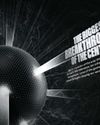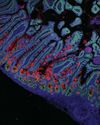A year ago this month, Major Tim Peake blasted off to spend half a year aboard the International Space Station. Now, six months after his return to Earth, he chats to us about his experiences in space.

Astronaut Tim Peake became a national hero on 15 December 2015 when he headed off into space for a six-month visit to the International Space Station (ISS). For years, the UK government had been staunchly against contributing money, and therefore astronauts, to the European Space Agency (ESA).
Peake’s six months aboard the ISS were an unqualified success in every sense. He performed extraordinary science and inspired millions of people, young and old, through his tweets, photos and videos. Now that he’s back on Earth, spreading the message that human space flight is a good thing for the UK is top of his priorities.
How did you find returning to Earth?
There’s definitely an adjustment period. I almost see it as two: a short-term adjustment and then a longer-term adjustment. The shorter term is obvious because when you first stand on Earth, your vestibular [balance] system is in overdrive and it’s quite obvious that your body has got some serious adjusting to do. Any head movement from side to side feels very disconcerting, and so does standing up or sitting down. When you walk you have your legs a little bit wider apart and you are very careful not to turn your head as you are walking. But that goes in about two to three days. It’s remarkable to watch your body progress. After two to three days everything is pretty much normal. You can balance, and walking starts to be okay. I was in the gym on the running machine and lifting weights three days after getting back, and was feeling pretty okay.
Then you’re into the second phase, which is more gradual. Even now, three months on, I still don’t feel at the peak fitness I was before the mission. I think that’ll take another couple of months.
What was one of the first things you noticed on returning to Earth?
Esta historia es de la edición Christmas 2016 de BBC Focus - Science & Technology.
Comience su prueba gratuita de Magzter GOLD de 7 días para acceder a miles de historias premium seleccionadas y a más de 9,000 revistas y periódicos.
Ya eres suscriptor ? Conectar
Esta historia es de la edición Christmas 2016 de BBC Focus - Science & Technology.
Comience su prueba gratuita de Magzter GOLD de 7 días para acceder a miles de historias premium seleccionadas y a más de 9,000 revistas y periódicos.
Ya eres suscriptor? Conectar

THE WORST IDEAS OF THE 21ST CENTURY
NOT ALL IDEAS CAN BE HITS. ALONGSIDE GROUND-BREAKING INNOVATIONS, 21ST-CENTURY SCIENTISTS HAVE HELMED THEIR SHARE OF WILD TECH FLOPS, DUBIOUS THEORIES AND OVERHYPED BREAKTHROUGHS. HERE ARE THE BIGGEST TO FORGET

10 IDEAS THAT WILL SHAPE YOUR NEXT 25 YEARS
Predicting the future is considered a fool's game. But it's one many of us like to play.

THE BIGGEST BREAKTHROUGHS OF THE CENTURY
We're a quarter of the way into the new century. To mark this milestone, we asked the UK's top minds to highlight some of the game-changing scientific breakthroughs shaping our world since the year 2000

DO THE SCIENCE COGNITIVE SHUFFLE
Trouble sleeping? A lot on your mind? Use this trick and sedate your synapses

WHAT DETERMINES HOW MANY ABS I CAN GET?
Assuming you're a human being, you have exactly the same number of abs as everybody else: two.

HOW CAN I IDENTIFY MY PSYCHOLOGICAL BLIND SPOT?
In the 1950s two American psychologists, Joseph Luft and Harrington Ingham, proposed a way of thinking about psychological blind spots - things you don't know about yourself - that they called the 'Johari Window' (the term is a combination of their first names).

How can I change my personality?
Want to become more confident, extroverted or assertive? Science shows that with a few simple changes, you can unlock your best self

Could your cosmetics be harming your health?
Cosmetic companies are phasing out microplastics and so-called 'forever chemicals' to help protect consumers.

extraterrestrial US Congress is talking about activity again. Is the truth really out there?
Despite several testimonies, the question remains frustratingly unanswered

Map of 100 million human body cells revealed
Over three dozen new studies mark significant milestone towards complete Human Cell Atlas